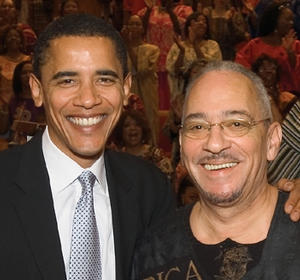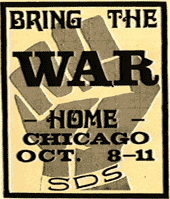Skip to comments.
Church and economy-Excerpts from Cardinal Ratzinger(PopeBenedict XVI) 1984 interview
http://www.communio-icr.com/articles/PDF/ratzinger13-3.pdf ^
| 1984
| Cardinal Ratzinger
Posted on 07/03/2009 5:41:57 PM PDT by stfassisi
But let us return once again to the common points in the philosophical foundations of Marxism and capitalism taken strictly. The second point in common-as will already have been clear in passing-consists in the fad that determinism includes the renunciation of ethics as an independent entity relevant to the economy. This shows itself in an especially dramatic way in Marxism. Religion is traced back to economics as the reflection of a particular economic system and thus, at the same time, as an obstacle to correct knowledge, to correct action-as an obstacle to progress, at which the natural laws of history aim. It is also presupposed that history, which takes its course from the dialectic of negative and positive, must, of its inner essence and with no further reasons being given, finally end in total positivity. That the Church can contribute nothing positive to the world economy on such a view is clear; its only signhcance for economics is that it must be overcome. That it The future of the world economy can be used temporarily as a means for its own self-destruction and thus as an instrument for the "positive forces of history" is an 'insight' that has only recently surfaced. Obviously, it changes nothing in the fundamental thesis.
For the rest, the entire system lives in fact from the apotheosis of the central administration in which the world spirit itself would have to be at work, if this thesis were correct. That this is a myth in the worst sense of the word is simply an empirical statement that is being continually verified. And thus precisely the radical renunciation of a concrete dialogue between Church and economy which is presupposed by this thought becomes a confirmation of its necessity.
In the attempt to describe the constellation of a dialogue between Church and economy, I have discovered yet a fourth aspect. It may be seen in the well-known remark made by Theodore Roosevelt in 1912: "I believe that the assimilation of the Latin-American countries to the United States will be long and difficult as long as these countries remain Catholic." Along the same lines, in a lecture in Rome in 1969, Rockefeller recommended replacing the Catholics there with other Christians- an undertaking which, as is well known, is in full swing. In both these remarks, religion-here a Christian denomination- is presupposed as a socio-political, and hence as an economic- political factor, which is fundamental for the development of political structures and economic possibilities. This reminds one of Max Weber's thesis about the inner connection between capitalism and Calvinism, between the formation of the economic order and the determining religious idea. Marx's notion seems to be almost inverted: it is not the economy that produces religious notions, but the fundamental religious orientation that decides which economic system can develop. The notion that only Protestantism can bring forth a free economywhereas Catholicism includes no corresponding education to freedom and to the self-discipline necessary to it, favoring authoritarian systems instead-is doubtless even today still very widespread, and much in recent history seems to speak for it. On the other hand, we can no longer regard so naively the liberal- capitalistic system (even with all the corrections it has since received) as the salvation of the world. We are no longer in the Kennedy-era, with its Peace Corps optimism; the Third World's questions about the system may be partial, but they are not groundless. A self-criticism of the Christian confessions with respect to political and economic ethics is the first requirement. But this cannot proceed purely as a dialogue within the Joseph Cardinal Ratzinger Church. It will be fruitful only if it is conducted with those Christians who manage the economy. A long tradition has led them to regard their Christianity as a private concern, while as members of the business community they abide by the laws of the economy.
These realms have come to appear mutually exclusive in the modern context of the separation of the subjective and objective realms. But the whole point is precisely that they should meet, preserving their own integrity and yet inseparable. It is becoming an increasingly obvious fad of economic history that the development of economic systems which concentrate on the common good depends on a determinate ethical system, whch in turn can be born and sustained only by strong religious convictions. Conversely, it has also become obvious, that the decline of such discipline can actually cause the laws of the market to collapse. An economic policy that is ordered not only to the good of the group-indeed, not only to the common good of a determinate state-but to the common good of the family of man demands a maximum of ethical disci line and thus a maximum of religious strength. The political Po rmation of a will that employs the inherent economic laws towards this goal appears, in spite of all humanitarian protestations, almost impossible today. It can only be realized if new ethical powers are completely set free. A morality that believes itself able to dispense with the technical knowledge of economic laws is not morality but moralism. As such it is the antithesis of morality. A scientdic approach that believes itself capable of managing without an ethos misunderstands the reality of man. Therefore it is not scientific. Today we need a maximum of specialized economic understanding, but also a maximum of ethos so that specialized economic understanding may enter the service of the right goals. Only in this way will its knowledge be both politically practicable and socially tolerable.-Translated by Stephen
TOPICS: Catholic
KEYWORDS:
I hope Pope Benedict's upcoming encyclical is similar to this.
1
posted on
07/03/2009 5:41:57 PM PDT
by
stfassisi
To: AveMaria1; Friar Roderic Mary; fr maximilian mary; Kolokotronis; Carolina; sandyeggo; Salvation; ...
In the attempt to describe the constellation of a dialogue between Church and economy, I have discovered yet a fourth aspect. It may be seen in the well-known remark made by Theodore Roosevelt in 1912: "I believe that the assimilation of the Latin-American countries to the United States will be long and difficult as long as these countries remain Catholic." Along the same lines, in a lecture in Rome in 1969, Rockefeller recommended replacing the Catholics there with other Christians- an undertaking which, as is well known, is in full swing. In both these remarks, religion-here a Christian denomination- is presupposed as a socio-political, and hence as an economic- political factor, which is fundamental for the development of political structures and economic possibilities. This reminds one of Max Weber's thesis about the inner connection between capitalism and Calvinism, between the formation of the economic order and the determining religious idea
2
posted on
07/03/2009 5:44:18 PM PDT
by
stfassisi
((The greatest gift God gives us is that of overcoming self"-St Francis Assisi)))
To: stfassisi
Pope Benedict, also from 1984...
Excerpt from The American Thinker
Article: Obama, Black Liberation Theology, and Karl Marx
May 28, 2008
Just one nugget from the Sacred Congregation for the Doctrine of the Faith, "Instruction on Certain Aspects of the ‘Theology of Liberation': "...it would be illusory and dangerous to ignore the intimate bond which radically unites them (liberation theologies), and to accept elements of the marxist analysis without recognizing its connections with the (Marxist) ideology, or to enter into the practice of the class-struggle and of its marxist interpretation while failing to see the kind of totalitarian society to which this process slowly leads."
--Joseph Cardinal Ratzinger, Prefect, now Pope Benedict XVI; written in 1984
Understanding that black liberation theology is Marxism dressed up to look like Christianity helps explain why there is no conflict between Cone's "Christianity" [i.e. 'reverend Wright's thing] and Farrakhan's "Nation of Islam." They are two prophets in the same philosophical (Marxist) pod, merely using different religions as backdrops for their black-power aims.
http://www.americanthinker.com/2008/05/obama_black_liberation_theolog.html
________________________________________________________

For all you'll ever need or want to know about
Wright's Marxist "Black Liberation Theology",
see my FR Home page:
http://www.freerepublic.com/~etl/
Hint...

"Their founding document [the Weather Underground's] called for the establishment of a "white fighting force" to be allied with the "Black Liberation Movement" and other "anti-colonial" movements[1] to achieve "the destruction of US imperialism and the achievement of a classless world: world communism."..."-Berger, Dan (2006). Outlaws of America: The Weather Underground and the Politics of Solidarity. AK Press, 95.
http://en.wikipedia.org/wiki/Weatherman_Underground#cite_ref-Berger_0-0

Outlaws of America: The Weather Underground and the Politics of Solidarity (Paperback) by Dan Berger
http://www.amazon.com/Outlaws-America-Underground-Politics-Solidarity/dp/1904859410
3
posted on
07/03/2009 5:51:45 PM PDT
by
ETL
(ALL the Obama-commie connections at my FR Home page: http://www.freerepublic.com/~etl/)
To: ETL
Nice find. I had not seen that one.
There is no doubt that Christ has chosen Pope Benedict XVI to lead the Church during these times
4
posted on
07/03/2009 5:57:14 PM PDT
by
stfassisi
((The greatest gift God gives us is that of overcoming self"-St Francis Assisi)))
To: stfassisi
This reminds one of Max Weber's thesis about the inner connection between capitalism and Calvinism , between the formation of the economic order and the determining religious idea. Marx's notion seems to be almost inverted: it is not the economy that produces religious notions, but the fundamental religious orientation that decides which economic system can develop. The notion that only Protestantism can bring forth a free economy — whereas Catholicism includes no corresponding education to freedom and to the self-discipline necessary to it, favoring authoritarian systems instead — is doubtless even today still very widespread, and much in recent history seems to speak for it. -- Joseph Cardinal Ratzinger, Market Economy and Ethics, 1985
Related threads:
The Pope predicted economic Armageddon back in 1985Pope brands financial system selfish, short-sighted Short-sighted speculation harms economy, endangers peace, Pope writes in World Peace Day messageBook review: The Protestant Ethic and the Spirit of Capitalism, by Max Weber
5
posted on
07/04/2009 8:00:33 AM PDT
by
Alex Murphy
("Luther's phrase "faith alone" is true, if it is not opposed to faith in charity, in love" - BXVI)
Disclaimer:
Opinions posted on Free Republic are those of the individual
posters and do not necessarily represent the opinion of Free Republic or its
management. All materials posted herein are protected by copyright law and the
exemption for fair use of copyrighted works.
FreeRepublic.com is powered by software copyright 2000-2008 John Robinson


